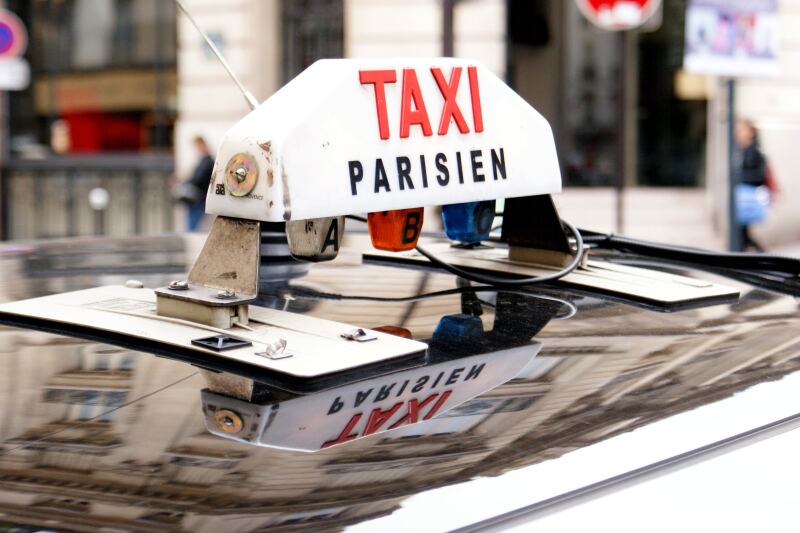You’ve just finished lunch at a charming French café and received the bill. Your hand hovers over your wallet ... should you leave a tip in France? Yes, actually—if you had especially good service.
According to the unspoken rules of French tipping culture, gratuity is not expected for wait staff in restaurants, taxis, and hotels because service fees are already calculated and included in any final bill; all employees are paid a living wage by employers and do not rely on tips for their livelihoods. In France, hospitality workers, from servers to bellhops, earn a decent minimum wage and enjoy benefits like paid holidays. That said, customers can still choose to show their appreciation for an exceptional experience with a small tip, the amount of which varies on the type of establishment and service.
Use these helpful guidelines to navigate tipping etiquette when traveling in France, which will universally apply throughout the nation, whether you’re visiting Paris or the countryside.

Always try and keep a few euros handy when you’re out and about.
Photo by montatip lilitsanong/Unsplash
Tipping in French restaurants and cafés is not required
Whether you’re at a local café or a Michelin-starred restaurant, 15 percent is automatically included as a service charge in French restaurants by law. This fee is usually indicated on the menu or the final bill with the phrase “service compris.” Nevertheless, if you have a friendly or efficient waiter, you can leave a small gratuity (un pourboire), but this is by no means required.
In more touristy restaurants, you might come across audacious waiters who try to tell you that a gratuity isn’t included. Technically they’re right; service is included—a gratuity is not. Regardless, you are not obligated to leave them anything.
For a simple beverage, you can round up to the nearest euro or leave 20 to 50 centimes per drink. For a meal at a casual café or restaurant, you could leave one to two euros per person. For a fine-dining establishment, where the service is much more attentive, you may want to leave 5 to 10 percent.
It’s best to have some change or small bills for tipping because there isn’t the option of leaving a tip on French credit card slips (service is included in the price). You can ask the waiter to add a tip before he punches in the total amount on the credit card terminal; however, with this method, you can’t be sure that the tip is paid to the staff. So, it’s a good idea to keep a few loose euros on hand.

While it’s not a requirement to tip taxi drivers, it’s a nice gesture—especially if they’ve helped you with a heavy bag.
Photo by Diego Fernandez/Unsplash
Tipping taxi drivers and private chauffeurs
Tipping taxi drivers isn’t required; however, locals often round up to the nearest euro or leave up to 5 percent. If the driver helps you with your bags (particularly if they’re large), it’s customary to tip one or two euros per bag.
For a private car service, such as a prebooked airport transfer or full-day car tour, you could tip 5 to 10 percent. When it comes to Uber, there will always be an option to tip your driver, and the same rules apply: If the experience was good, you can add gratuity through the app.

Depending on the type of hotel you stay at France, gratuity might be a good idea.
Courtesy of Château d’Estoublon
Tipping at hotels
Depending on your hotel and what you request from the staff, there are a range of services for which you might want to leave a gratuity.
- Luggage handlers: One or two euros per bag
A couple of euros is a small price to pay for help with your bags through lobbies, into elevators, and along corridors. - Doormen: One or two euros
Feel free to pass on a few notes to those hailing cabs or providing a valet service. - Room service waiters: A few euros
It is courteous to give a couple of notes or coins to the staff who bring your meals. Ask for change or directions to the nearest ATM when you check in. - Housekeeping staff: Two to four euros per day
More unsung heroes who help our trips go smoothly. You can pass on the money directly or sometimes leave it in an envelope in the room or at the reception desk. - Concierge: Five to 20 euros
If you’ve asked your concierge for a restaurant reservation or to arrange other services, then you should tip five to 20 euros, depending on what they’ve helped you with. For example, recommending the best tour guide and setting up your experience deserves a larger tip than a quick call for a dinner reservation.

It’s customary to tip people who work in the beauty industry in France.
Photo by Uby Yanes/Unsplash
Tipping in French spas or beauty salons
In France, you should tip hairdressers, beauticians, massage therapists, or other wellness professionals 5 to 10 percent, so you may want to slip this into your pocket beforehand.
Gratuities for theater ushers
Although ushers are likely paid a salary, in private theaters it’s customary to tip a euro or two. So, if you’re going to the opera, a classical concert, or play, have some coins handy.

During “free” tours in France, it’s especially important to guides.
Photo by Unsplash/Getty
Tipping for tours, classes, and other tourism services
This is where tipping can get a little fuzzy in France. If you book a private tour, class, or excursion directly with a guide or instructor, you’re usually charged a flat fee, and thus tipping is not expected. If you book via an online booking platform, a tour company, or your concierge, you could leave a 10 to 20 percent gratuity if you’re happy with your experience. If you have any doubts, check your booking confirmation; information about tipping is usually included in the fine print.
In recent years there has been a proliferation of “free tours” in major cities. Although advertised as “free,” the guides have to pay a set amount (about two euros) to the tour company for each person who shows up at the beginning of the tour—even if some inevitably drop off along the way. Therefore, if you take one of these tours and you enjoy your guide, consider leaving at least five to seven euros per person so the guide can, in turn, tip the waiter at their local café.
Are there any situations where tipping is offensive?
In general, French people will always appreciate a tip if they’ve provided a service. But there is one big no-no when it comes to French tipping etiquette: A giant tip isn’t always better. In French culture, flashy displays of wealth are seen as unsightly, including the act of leaving a massive tip post-dinner. So while there isn’t a situation in which a tiny gratuity won’t be appreciated, leaving €100 on the table after a €25 Parisian café stop—even if the server gave you some great travel tips—won’t be received warmly.
This article originally appeared online in 2022; it was most recently updated on January 11, 2024, to include current information.








